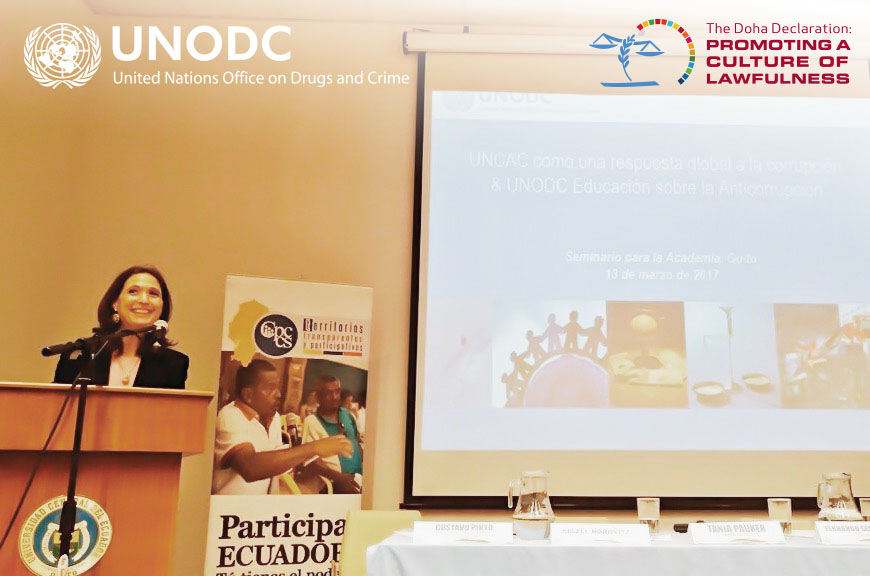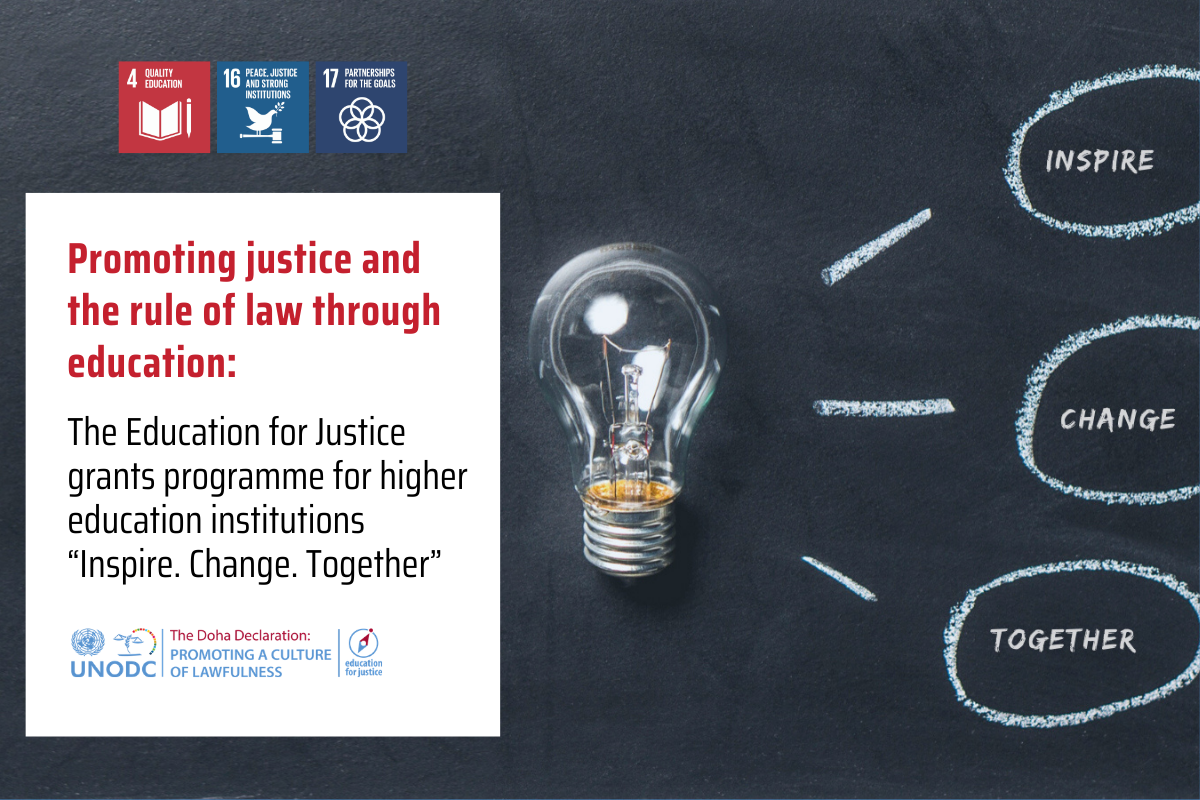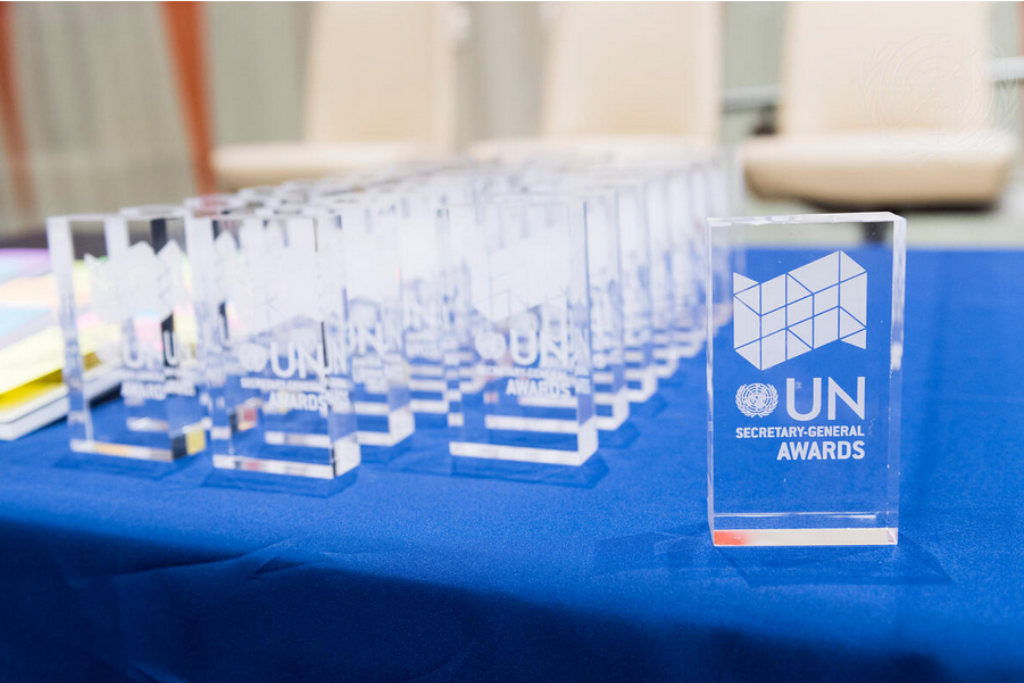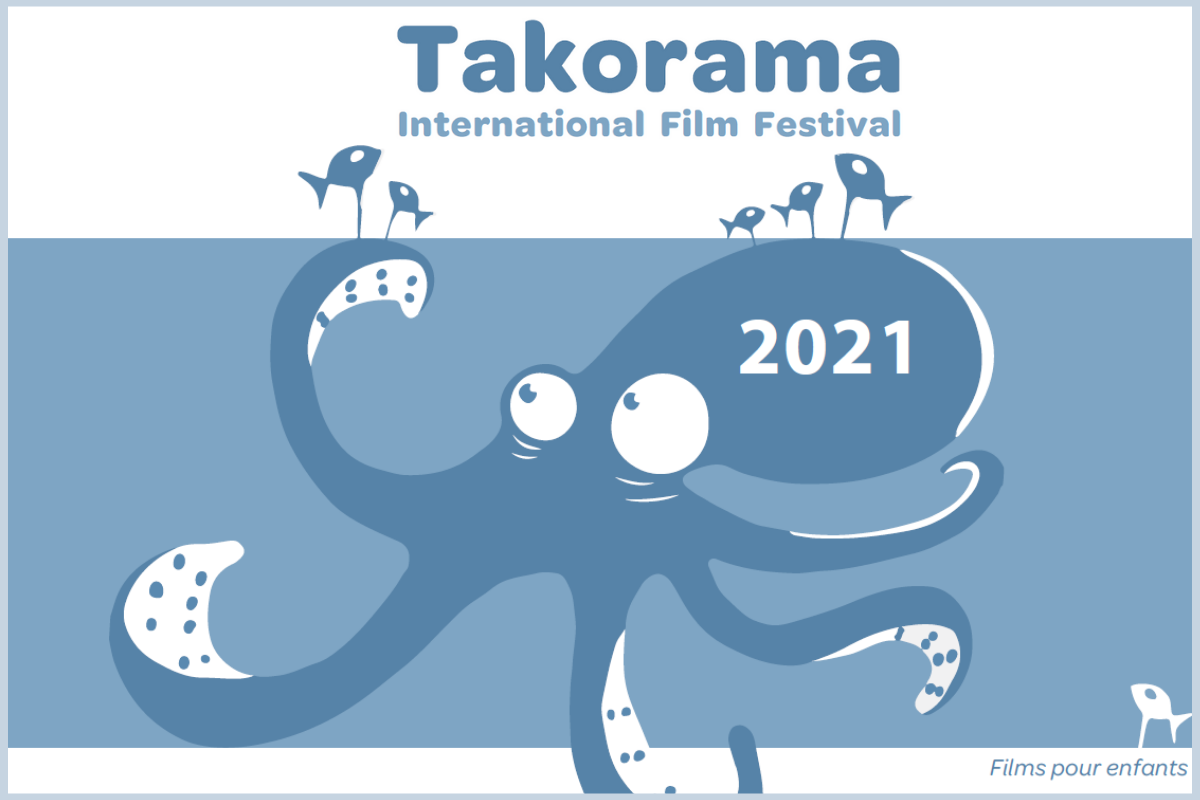Education for Justice: working with academics and the private sector to teach integrity and ethics

23 March 2017 - In mid-March, Ecuador's Council for Public Participation and Social Control ( Consejo de Participación Ciudadana y Control Social - CPCCS), in collaboration with UNODC, organized a series of anti-corruption capacity-building events in Quito. These included two academic seminars for professors and students as well as a seminar for private sector actors. During all three, UNODC presented the Education for Justice (E4J) initiative, emphasizing the forthcoming integrity and ethics university modules. The presentation was designed to introduce E4J and particularly its focus on integrity and ethics education, to encourage the formation of networks of integrity and ethics academics, and to highlight tools and materials that are available to ethics educators. All three seminar presentations were followed by an open discussion.
The academic seminars were held at Ecuador's Central University, with participation from professors and students. While coming from different departments and disciplinary backgrounds, they shared the common goal of enhancing existing courses or introducing integrity and ethics courses into their curricula and strengthening the capacity of academics to teach ethics in an effective manner. Besides its intrinsic value, ethics education was considered important for preparing future leaders and professionals to prevent and combat crime and corruption by adhering to high ethical standards. During the discussions, participants expressed a genuine interest in the forthcoming E4J modules and materials and offered to contribute to their development through conducting pilots and submitting inputs based on their own experience.
Ecuador's Office of the Superintendent of the Banks hosted the private sector seminar with representatives from multinational corporations, financial institutions and the local chamber of commerce. They, too, considered ethics education crucial for ensuring a corruption-free business environment and society, and were pleased to learn that E4J modules will cover issues such as corporate integrity and related topics.
Across the three events, a total of 300 participants were involved, including additional speakers from the Public Prosecution, the State Comptroller, the Council for Civic Participation and Social Oversight, and other state bodies involved in tackling corruption.


